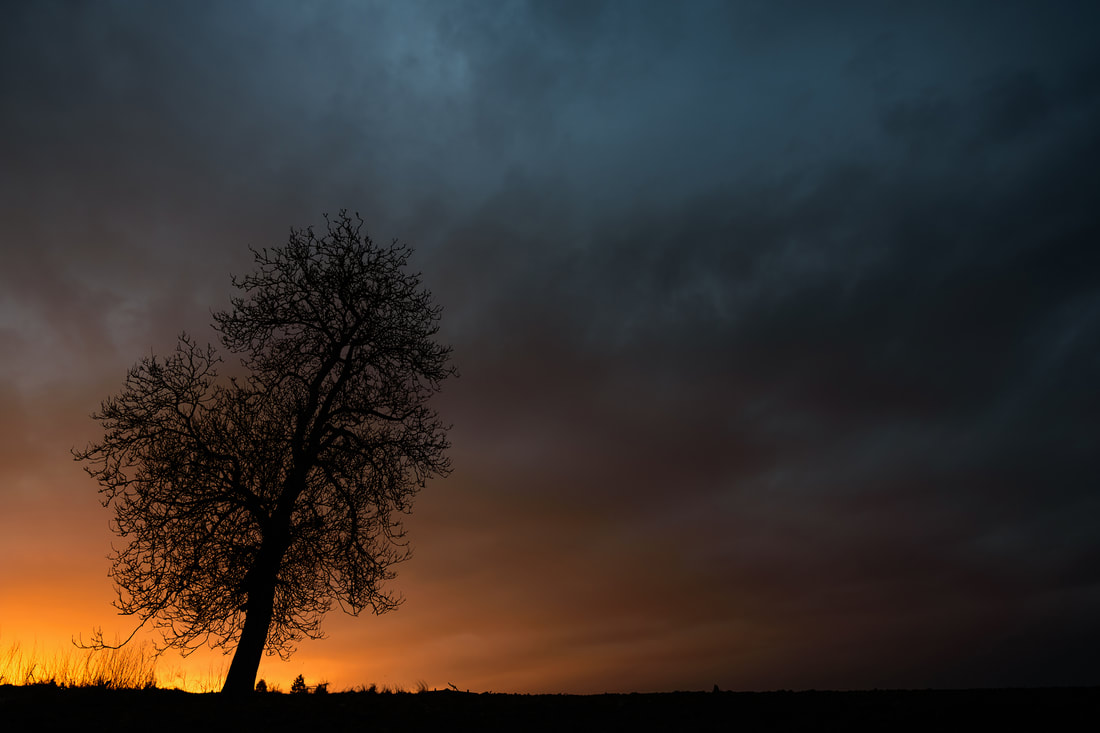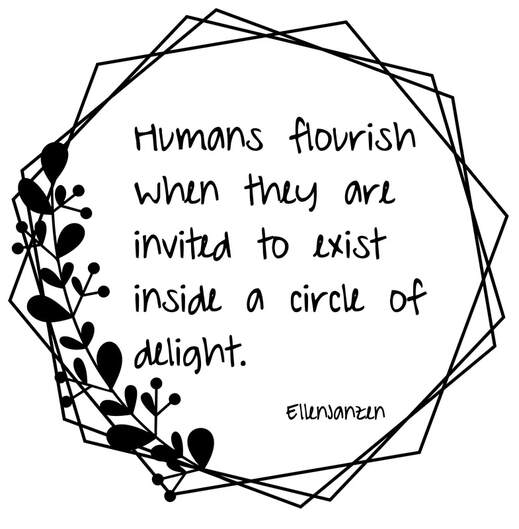|
A friend of mine fell down a deep hole on a black night—no moon to light his path or warn of danger ahead. This is not a parable, it really happened. He went out to find a place to relieve himself while visiting friends in an un-serviced region in North Africa. They were digging a new latrine and he fell into the hole they had diligently excavated. So deep he could not get out. He needed help.
He was surprised at his findings. Besides feeling great gratitude that no bones were broken or that he was even alive, he was genuinely astonished at the discovery that in a few seconds (or less) "your whole life flashes before your eyes," His mind flipped through a long sequence of memories from his life as he tumbled to the bottom of the hole. Another friend described how her journey as a companion to a loved one facing death was one of great healing for him as he reflected on his past. His slow journey was filled with grace and he was ready and at peace in his last days. Her comments left me with a completely revised option for how I could view end-of-life reconciliation of past, present and future. That journey toward the horizon where our time on this planet ends is where we find out what is really beyond—because no matter how much we think we know, we are facing a great unknown. It is helpful to face that with hope and faith. But it is still a first and last for most of us. This final passage is above all a singularly "alone" journey. Something we navigate without the actual companionship of anyone who goes through the same "porthole" as we do. We may go at exactly the same time, but it is still a journey we cannot share. But we will all face it. By surprise, some of us. Or with a slow waning of breath and strength for many of us. What we have in common is that the journey will invite us to reflect on our lives. As it did for the sudden fall of a friend into a black hole and for a friend who walked through cancer with her fiance in her mid twenties. It is a journey that will invite us to ask what was of most value to us and what we perhaps regret. It will invite us to think back as we are pushed forward into a whole new dimension. And if we are lucky, or blessed, or both...we will have someone to talk with who is interested in hearing those stories or reciting them back to us—"Remember the time...." We will have the option to share our values and memories, like the friend who told me that in facing death and preparing for departure, her beloved partner found healing for his soul's wounds. "It was beautiful," she said. If you have a chance to share time with someone who knows they are facing death, I encourage you to embrace the opportunity for reflection. Tell the stories of events that gave you joy and meaning together. And then end with a short observation—"You know, what I love best about that story/time/memory is that we shared......" Or, "I love that you were able to ..... in that story/at that time. That will always mean so much to me." Because no matter how hard it is to watch a loved one die—and it is hard, it really is. No matter how alone it feels to you and you know it is an alone journey for them—there are some deep roots that you share. And even in silence, when the time for words has passed, those roots, I believe, are felt by the soul and give comfort to those we love who are facing what is beyond that great horizon that has been so hard to look at, but now looms as the main view. The quiet presence of love and delight—yes, your delight in the joy you have shared that is now feeling torn and splintered by death—that quiet presence has to now be the comfort that you both need. And there is grace, immense grace and love, coming from over that horizon to embrace you.
0 Comments
When I first read the following quote from the author of Uncle Tom's Cabin (Harriet Beecher Stowe) it was a revelation. The implications of what she was saying rolled over and over in my mind. Here is the quote in somewhat quaint old English--
"When the heart strings are suddenly cut, it is, I believe, a physical impossibility to feel faith or resignation. There is a revolt of the instinctive and animal system and though we may submit to God, it is rather by constant painful effort than sweet attraction." Harriet Beecher Stowe Stowe is describing what is now commonly understood as a trauma response— your brain enters a fog and your feelings and thoughts are dulled by the impact of what has happened. She talks about not being able to feel faith. I translate this to the difficulty I have in tough times. I find it hard to feel the presence of God around me even though I have walked in Faith that He is real and personally interested in my life (which is what Jesus taught). I think what Stowe is describing is that our instincts are designed to kick in with the fog to protect us from the potential harm of feelings too big for us to process. In those moments we still get to choose. I choose to say "Yes, welcome" to God's presence. I choose to give room to the tears that brim. I choose to share with a friend even though I sound like a bit of a babbler. I choose to stop trying to keep up with some things in life that are options and give myself space and time to be silent. Sometimes I even choose to say to God, "I know with my head that you are good but I don't feel it right now and I find my faith falling short of that goal. I can't actually say "you are good" right now. And I can't fix that. Go ahead and change that if you want to—or can." Harriet Beecher Stowe tells us that it is painful to make this choice. She acknowledges that there is a world of discomfort or frustration or disappointment inside the fog we find ourselves in. If you are in a crisis or the wake of a crisis and you feel like the fog has closed in around you...maybe there is another way to see that. Maybe the fog is a gift. And maybe in the fog there is MORE of God's presence, even though it feels the other way around. And maybe you choose to just say "yes" and trust that God can do everything else. Even though it is a stretch—it's a simple yes, but maybe the hardest yes you've ever said. Because this "yes" is what grace is all about. We say "yes" to what we believe is the ultimate power of love—our Creator. And God, who is still a mystery to us at the best of times, does what God does best. God cannot help but hold us with love. We are his beloved children. "For in the day of trouble he will keep me safe in his dwelling; he will hide me in the shelter of his sacred tent and set me high upon a rock." Psalm 27:5 Have you ever noticed what makes it easy for you to do your best—to live at your most optimal, joyous, even most productive self?
Or, conversely, have you ever been in a job where one of your struggles is that you know you are not “performing”…or even existing…as the best of who you are, or could be? Why is that? What are the influences…? Here is a theory—test it out on yourself or someone close by. A loved one who may benefit from being encouraged. The theory is that we mature into our best self when those around us take delight in us. (I want to give credit to whoever noticed this—I got the info from Dr. Gordon Neufeld, but there were also researchers who studied this, if I remember correctly. Can’t find sources, but Kudos to whoever thought to study this). So let’s just go with our own gut instincts on this. Do you do better when people take delight in you? (Me? Yes. And when I dig deep, I want to know not just that there is One who delights in me, but I want to feel and see and “know”—experience—that delight.) But let’s get back to that “test the theory” moment I had just a few words back. Here is a challenge for you today. Choose someone you love, but who may appear to be struggling…not quite living in their optimal self. Do not TALK about delight (don’t even use the word)…but find three or four ways to express your delight. How you greet them in the morning…how much time you take to sit down beside them and listen…a hug if they like hugs, a tickle if that makes them laugh…a new game to play together…or sing them a song that you love, and dance. If you manage to make them laugh, so much the better. OR, go a step further. Do something that they like to do but you just barely tolerate—make a lego creation, play an online game, watch a movie that isn’t your cup of tea. Choose to be present to this person, engaged in their day, with your delight in being with them—seeing them for who they are, knowing that they are a gift. Because they are. Each human is essentially a gift. Take a whole day if you can! Dedicate it to delight. Give the gift of delight generously. Supersize it…give even more delight if something goes wrong. Hold onto your tongue if they are 3 years old and just poured a $50 bottle of face cream down the drain—yup, it happened (to me!) (The face cream was a gift. You get the picture!) You do get to say that is sad (and maybe even cry a little so you can get back to the test). But if they can come out of the test with the knowledge that pouring cream down the drain is not okay, but nothing has been damaged in the love department where delight is “produced” (born is a better word, probably…) If delight can stay intact even through the tough stuff: You win. Your human “test” wins. Love wins. Basically everyone wins. And I think, if you are watching, you will see the best coming out in the human you chose to invite into your experiment of this theory. Humans flourish when they have roots that have been established in delight. I think that is the original design of “us”—as humans—and I love that it still works even after centuries of being mis-handled (or neglected, or squeezed out). Oh, and when your experiment day is over, don’t forget to start it again tomorrow…(and don’t miss how good it made you feel, too). We live for connection—it is hard wired into us. Thriving in life is reflective of, dependent on, and part of this. Thriving in relationships. We cannot truly say we are doing well in general if we are not able to do well in relationships.
But that puts us at risk. Terrible risk. Because if our relationships are rich and full, they also carry the capacity to rip our insides apart when they are lost. It is beautiful and terrible both at the same time. George Eliot says it this way, “What greater thing is there for two human souls, than to feel that they are joined for life--to strengthen each other in all labor, to rest on each other in all sorrow, to minister to each other in all pain, to be one with each other in silent unspeakable memories at the moment of the last parting?” In that last moment of parting, our souls are torn apart—and that is grief. Grief is the raw edge of eternity cut in half inside our soul. Sorrow is how we heal from grief. Sorrow is the torrent of rain, the storm of emotions, the slow drizzle of winter, the ever present running of the salty seas until our heart starts to stabilize. The sadness of being torn apart expressed through a gift of nature—tears. A river of tears that washes through us and takes us to a new place where we can begin to recover our senses. And grow again. If you have said good-bye to a loved one you know that there is a season that is too hard to put into words. There is a season that needs to be put into tears. And there is a season that slowly takes you forward to a new you—a different, perhaps limping or scarred you. But a new season. Wherever you are in that process, today I wish you to know that the depth of your pain is a reflection, an inversion, of the richness of what you have enjoyed. That is not supposed to help you "get over it"....please do NOT hear that. It is supposed to give you permission to let the storm of emotions rage, the salty tears pound away at your heart and the river of sadness flow. Not so that you will get better, but so that you will come to a place where you can look back and remember the richness with joy. Sorrow is actually the pathway to gratitude. But it is usually a long slow walk. Give yourself the gift of patience and be where ever you are today with a space of kindness toward yourself that allows you to reflect and feel and slowly release the sorrow you need for your own well-being.  I've been thinking about a quote from Parker Palmer, who is a man who encourages me to think about how I think. It is a little bit like the gift of curiosity and surprise—how can we get ourselves to think outside of the box and be curious and surprised by what we don't know yet…? Sometimes it helps to read the ideas of a great thinker who lives in a different "circle"...to help us find our closed windows—windows we need to be curious about and open to new ideas. According to Dr. Debbie Hawker, people who choose to take their own lives are known by psychologists as people who are not good at finding solutions. Their choice to end their lives may be an expression that they can't figure out ways to resolve a problem they face—they've lost the energy for creative solution seeking. We do well to cultivate the need for "out of the box" thinking, good problem solving, before we reach a place of futility and despair. This, too, is part of finding those hidden windows and stirring up the curiosity to open them to new ways of living, thinking, being. So reading someone who sees something we (think we) know about, but from a completely different perspective, could be a pragmatic endeavour. Parker Palmer is that person for me. He walks in different streams of faith and helps me find fresh perspectives. Here is a quote from him on the topic of the Word becoming Flesh—Jesus becoming human... that words, airy ideas, can be brought to life through our own physical presence. Not only was Jesus God's Word, but we also bring words to reality by how live. "What good words wait to be born in us, and how can we love one another in ways that midwife their incarnation?" That is my quote from PP.—and just to clarify, I think he means the incarnation of our "good words"—not the person we are loving. If you have a word you feel is special or life-giving for you to pursue in this new year, what are you going to do to assist the incarnation of that word in a way that shows love to those around you? Is this what the story of Christ is about? That the "esoteric ideals" we hold precious—hope, peace, kindness, generosity, redemption—have to become a part of who we are as we walk the landscape of this human community we all participate in? I like this challenge. I, too, get to bring a word to life. I get to express something of invisible value to those I meet. I need to think about it and take some time to reflect—because if this is going to happen, if I am going to be a living expression of a word that is part of Life and Love—then it most certainly is going to begin in my thoughts and intentions. And this effort, this intention...this modification to my internal compass...this makes me part of the solution. And isn't that always a good place to be directing our gaze?  We live in our own brokenness—it's true. Whatever is broken inside us is there to stay—probably forever. If that is a scary thought to you, let me reframe it into something you might have the courage to embrace. None of us get through childhood without a few moments of futility, vulnerability, loss and sorrow. If we know we are broken, we have seen those moments for what they are: human imperfection (either our own or someone else's or circumstances beyond our control). If we don't have sorrow for those moments of loss (brokenness), we maybe don't have the full access to our emotions that we need for healing. People who have shut down their emotions live with a deficit—of self-awareness, of compassion, of empathy...and because they don't have those feelings, it is very hard to embrace justice. (Think about it—so much sense to this, and thank you Alfie Kohn for teaching me this.) So if you are feeling broken and perhaps are even in pain on this day, what I'd love to give you is a big word-hug and sit beside you and let you know you are not alone in your sorrow. But I'm going to give you something else instead. A big word-kick-into-clarity. Here it is. The place of brokenness and hurt that you are in is also the place of opportunity. If you can embrace the sorrow and cry for the losses you have endured, you will find a way through it. That is the design and purpose for tears—they wash away toxins in your brain and they help you find the pathway forward. What these same tears leave you with, however, is a pathway of beauty. Beauty for ashes, almost literally. There is a sea of compassion and kindness that comes with the act of grieving. When we have faced the sadness inside ourselves, when we have been honest with the brokenness, we come out as people who make room for the hard time that someone else is facing. We have empathy, we have capacity for compassion, we carry ourselves with patience and kindness. The work you are doing today to care for yourself is the gift you will give to someone else tomorrow or next week. It is not selfish or even self-centred to face your brokenness and grieve the losses. It is hard work and you are a magnificent human being making the world a bigger, better place by nurturing compassion in your own life. |
Author/Elaine
I write on how humans develop and grow through challenges we face. I've divided this into three categories--Growing Love is about relationships and how we create conditions for growth despite the inevitable challenges. Cloudburst is about grief, specifically—which is a tricky topic. We need to keep growing but pushing is the opposite of helpful. And in Dancing on Hot Sand I talk about personal inner growth in hard places—spiritual growth, without sounding religious, I hope. Archives
April 2021
Categories
All
|




 RSS Feed
RSS Feed